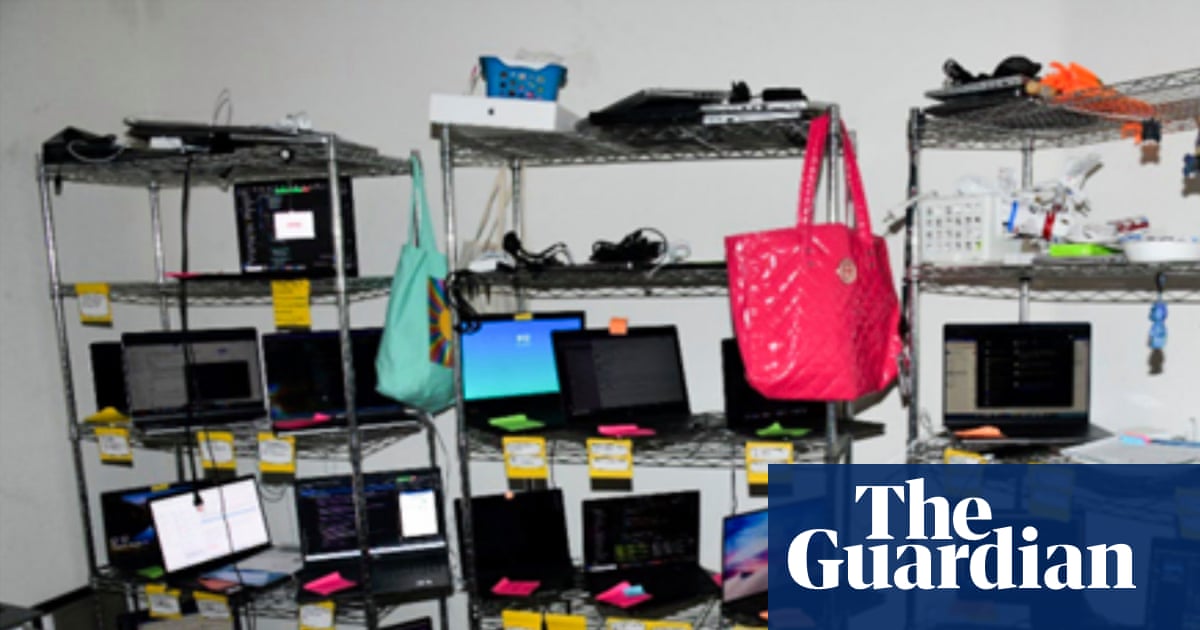T4K3.news
US woman sentenced for North Korea employment fraud
Christine Chapman faces over eight years in prison for aiding North Korean IT scams.

Christine Chapman faces prison time for her role in a North Korean remote-work fraud scheme.
US woman jailed for aiding North Korean IT fraud
Christine Chapman has been sentenced to over eight years in prison for her involvement in a scheme that allowed North Korean workers to masquerade as Americans in the U.S. job market. This scheme reportedly generated millions in fraudulent revenue, aiding North Korea's nuclear weapons program. Through agreements made on LinkedIn, Chapman helped to facilitate the employment of these workers at major U.S. companies, including Fortune 500 firms. As part of her work, Chapman set up ‘laptop farms’ that helped North Korean operatives appear as legitimate U.S. IT professionals. She was arrested in October 2023 after federal authorities discovered 90 laptops at her residence, leading to her guilty plea for wire fraud and identity theft, among other charges.
Key Takeaways
"I hope you guys can find other people to do your physical I-9s."
Chapman acknowledged the legal risks of her actions in communication with co-conspirators.
"I send my sincerest apologies. I am not someone who seeks to harm anyone."
Chapman's remorse signals her awareness of the scheme's impacts on innocent victims.
"Companies quickly realized: I can get good talent from anywhere."
This statement reflects the challenges faced by employers in remote hiring post-pandemic.
"If all corporations did that, would it eliminate the threat?"
Racenberg discusses the potential of returning to office norms as a solution against fraud.
Chapman's case highlights vulnerabilities in remote work systems that can be exploited by international criminals. It reveals the darker side of the gig economy, where identity theft can easily coincide with remote job opportunities. Cybersecurity experts warn that as companies become more open to remote hiring, the risk of similar scams will grow. This incident serves as a cautionary tale for employers about the importance of verifying applicants' identities and conducting thorough background checks to protect themselves and their customers from fraud.
Highlights
- No one ever thinks their job could be tied to a rogue state.
- Remote work opened doors, but not all of them are safe.
- Behind a screen, deception can flourish unnoticed.
- Vulnerabilities in remote hiring systems are a growing concern.
Concerns surrounding employment fraud
Chris Chapman’s case exposes systemic vulnerabilities in remote hiring practices, raising questions about identity verification and national security risks.
The broader implications of Chapman's case may push companies to rethink remote hiring practices.
Enjoyed this? Let your friends know!
Related News

US woman jailed for aiding North Korea's nuclear program

Arizona woman sentenced for North Korean fraud scheme

Zelenskyy reports 22 killed in overnight Russian strikes

Former North Korean IT worker exposes regime's funding scheme

Jaguar Land Rover employee sentenced for tax fraud

Documentary Investigates Iconic Vietnam Photo Controversy

Traders' Libor convictions overturned by Supreme Court

North Korea declares South Korea remains the enemy
